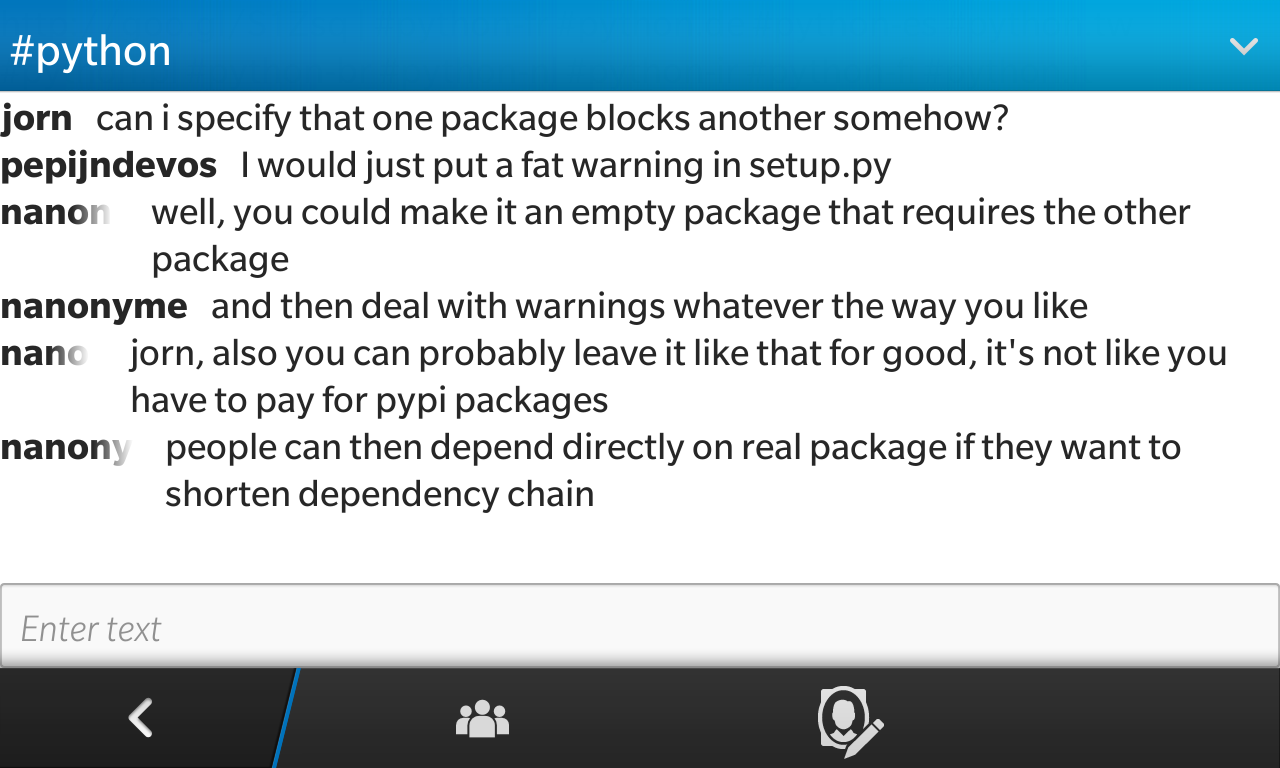Just before I went to EuroClojure I read about Gershwin, a concatenative programming language based on Clojure.
With a lot of time to think and code on the train between Amsterdam and Berlin and back, I thought: Why make this a language at all?
Using the threading macro you can make a basic stack program as follows.
(def add [stack]
(conj (drop 2 stack)
(apply + (take 2))))
(-> () ; the stack
(conj 1)
(conj 2)
add)
;; => (3)After that, things got interesting. What if I used a queue instead of a stack? What if I used any number of queues and stacks?
I switched to using thrush, wrote a function to generate words from Clojure functions, and did some magic to apply words to multiple stacks.
(defn nth-stack [n f]
#(apply update-in % [n] f %&))
(thrush [() ()] ; data stack and return stack
(lit 2) dup c+ ; add numbers
(lit 4) c= ; verify result
>r) ; put bool on return stack
;; => [() (true)]What if I used clojure.core.reducers/fold instead of reduce in thrush? Could I use dataflow programming and continuations to parallelize programs?

I failed at parallelization, but I surely achieved dataflow programming.
The idea is that you have a contiunation-passing-style function for popping of the stack. That function either calls the continuation with the head and tail of the stack, or returns a negative stack which will call the continuation when an item is conj‘d.
(deftype NegStack [popfn stack]
clojure.lang.ISeq
...
(cons [_ o] (popfn o stack))
...)
(defn mpeek [stack cont]
(if (seq stack)
(cont (first stack) (next stack))
(NegStack. cont stack)))
(defn add [stack]
(mpeek stack (fn [car cdr]
(mpeek cdr (fn [cdar cddr]
(conj cddr (+ car cdar)))))))
(thrush () (lit 2) add (lit 2))
;; => (4)Yes, you can have prefix, infix, postfix and otherfix all you want. But not on a fork-join pool.
I had it all figured out, including concatenating negative stacks. It’s just not conceptually sound. Imagine this program
(thrush () (lit 2) (lit 2) mul (lit 5) (lit 6) add add)
;; => (15)Using my fork-join-based pthrush thish might be split up as
(mconcat
(thrush () (lit 2) (lit 2))
(thrush () mul (lit 5) (lit 6) add add))The first block produces (2 2), the execution of the second block is more tricky.
mulproduces a negative stack- 5 and 6 are
conj‘d onto this stack, resulting in(30) - The
add’s consume 30 and produce a negative stack - This negative stack is concatenated to
(2 2), resulting in(34)
The problem is that mul got applied to (5 6) instead of (2 2) because of how the program was split.
It might still be possible to paralellize by analyzing the stack effect of words, but dataflow is definitely not the way to go.
All my experiments so far can be found on Github at pepijndevos/staack

